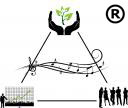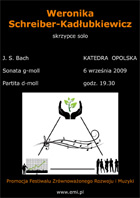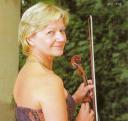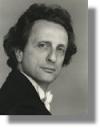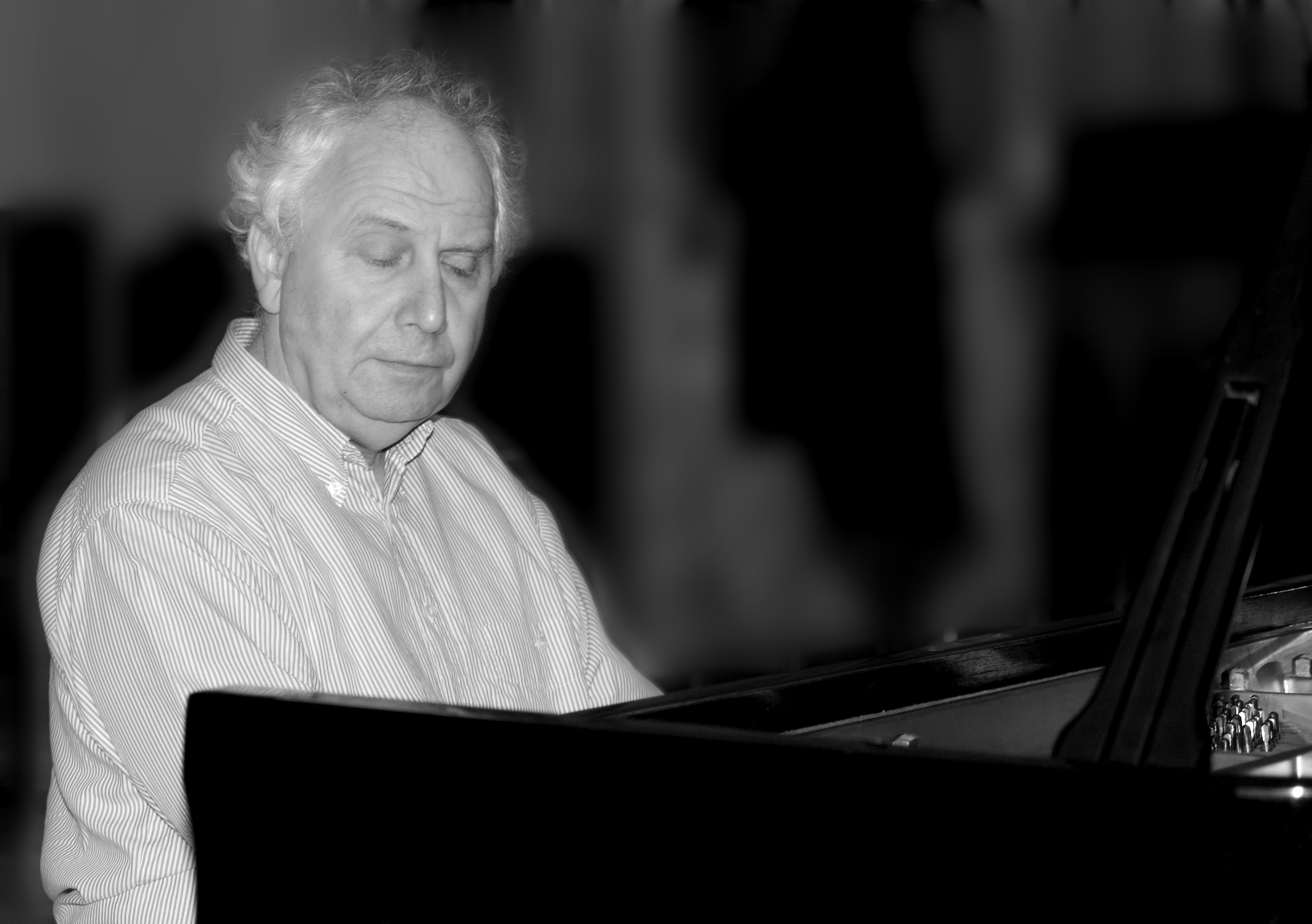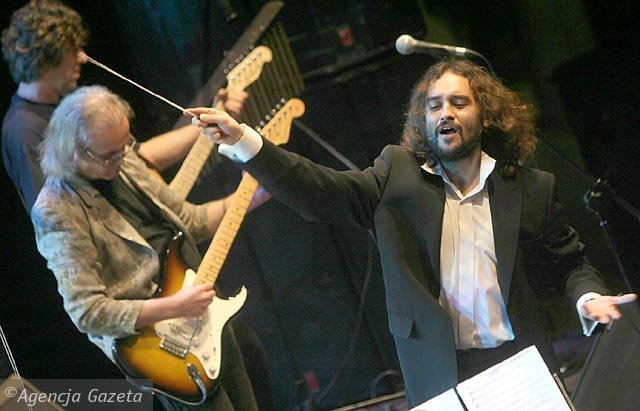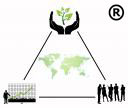Archiwum z miesiąca: September, 2007
On September 17, 2007, Professor Stefan Kozłowski passed away, taken by sudden death. Information about his death and funeral date reached me too late to attend his funeral and personally pay last respect to this giant fighter for sustainable development in Poland, who right down to the last moments of his life fought by organizing conferences, publishing books, giving public talks… There will be no more of them. His huge work, however, will not be lost – it will continue through his successors…
I want to thank you Professor for placing my name in nomination as a member of the “Man and the Environment” Committee affiliated with the Presidium of the Polish Academy of Science. I thank you for enabling me to participate in the Polish avant-garde of sustainable development. I thank you for motivating me for getting a PhD, and for your vision of me as a person leading a university department…
I haven’t got a PhD – I stayed on the path of consulting. The EU Bosnia&Herzegovina project destroyed my plans of scientific cooperation with you Professor, but here, on this Web site, I will promote sustainable development with application of integrated approach, based on the integral philosophy, as I mentioned in one of our discussion. I will write the book I promised to write… [/english]
Kategoria: Articles and reportage | Komentarze wył. »
“Astor Piazzolla i taneczne rytmy Argentyny”
Honorowy Patronat Jego Ekscelencji Ambasadora Argentyny w Polsce Pana Carlosa Alberto Passalacqua i Prezydenta Miasta Opola Pana Ryszarda Zembaczyńskiego
Duo Cordato wystąpi w Państwowej Szkole Muzycznej (PSM) w Opolu w dniu 14 października 2007 o godzinie 19:00.
Zespół w składzie Veronica Kadlubkiewicz skrzypce i Sebastian Cordero gitara oraz śpiew wykonają utwory Astora Piazzolii i improwizacje własne na tematy tanecznej muzyki Argentyny.
Przedsprzedaż biletów w Sklepie Muzycznym CODA, Opole Rynek 7. Sprzedaż biletów godzinę przed koncertem w szatni PSM. Bilety w cenie 35zł. Zniżka dla uczniów, studentów i emerytów.
Kategoria: Concerts | Komentarze wył. »
“Astor Piazzolla i taneczne rytmy Argentyny”
Honorowy Patronat Jego Ekscelencji Ambasadora Argentyny w Polsce Pana Carlosa Alberto Passalacqua
Duo Cordato wystąpi po raz pierwszy w Polsce w dniu 11 października 2007 w Galerii Zamku w Mosznej o godzinie 17:00.
Zespół w składzie Veronica Kadlubkiewicz skrzypce i Sebastian Cordero gitara oraz śpiew wykonają utwory Astora Piazzolii i improwizacje własne na tematy tanecznej muzyki Argentyny.
Bilety w cenie 25zł do nabycia godzinę przed koncertem przed Galerią.
Kategoria: Concerts | Komentarze wył. »
J.S. Bach Veronica Kadlubkiewicz skrzypce solo
Koncert muzyki skrzypcowej J.S. Bacha w Państwowej Szkole Muzycznej (PSM) w Opolu 7 października 2007 o godzinie 19:00.
W cenie biletu jest płyta z nagraniem artystki sonata a-moll BWV 1003 J.S. Bacha.
Program:
Sonata a-moll BWV 1003
Partita E-dur BWV 1006
Partita d-moll BWV 1004
Honorowy Patronat Prezydenta Miasta Opola Pana Ryszarda Zembaczyńskiego.
Przedsprzedaż biletów w Sklepie Muzycznym CODA. Zamawianie biletów pod telefonem 605259528. Sprzedaż biletów godzinę przed koncertem w szatni PSM. Cena biletów 35zł. Zniżka dla uczniów, studentów i emerytów.
Kategoria: Concerts | Komentarze wył. »
 Darmowy koncert muzyki skrzypcowej J.S. Bacha w Kosciele w Mosznej
Darmowy koncert muzyki skrzypcowej J.S. Bacha w Kosciele w Mosznej
6 października 2007 godzina 17:00.
Solistka: Veronica Kadlubkiewicz skrzypce
Program:
Sonata a-moll BWV 1003
Partita E-dur BWV 1006
Partita d-moll BWV 1004
Kategoria: Concerts | Komentarze wył. »
 16 września 2007 o godzinie 18:00 pierwszy raz w Opolu koncert zespołu The Stone w Sali Koncertowej Państwowej Szkoły Muzycznej (PSM) w Opou. Przedsprzedaż biletów w Sklepie Muzycznym CODA. Sprzedaż godzinę przed koncertem w szatni PSM. Cena biletów 35zł.
16 września 2007 o godzinie 18:00 pierwszy raz w Opolu koncert zespołu The Stone w Sali Koncertowej Państwowej Szkoły Muzycznej (PSM) w Opou. Przedsprzedaż biletów w Sklepie Muzycznym CODA. Sprzedaż godzinę przed koncertem w szatni PSM. Cena biletów 35zł.
Program: koncert typu live, improwizacje w oparciu o własne kompozycje Michała Wróblewskiego i Adama Wróblewskiego.
Honorowy Patronat Prezydenta Miasta Opola Pana Ryszarda Zembaczyńskiego.
Kategoria: Concerts | Komentarze wył. »
“…a great artist…”
Henryk Szeryng, Ann Arbor, MI
“…Her performance of Berg’s Chamber Concerto was not only perfection itself, but stands apart
as the most eloquent performance of this difficult work I have yet heard…”
Morton Feldman
“…she possesses temperament, the ability to evoke many contrasting moods, and a wide range of tone colors..”
Magil, American Record Guide
“…delicate and perceptive warmth of expression…” “effortlessly detailing each nuance of phrasing…”
Catherine Nelson, Strad, London
“…intense interpretation, profoundly vital, in perfect harmony with Mozart’s spirit…” “…authentic revelation…”
Rafael Nebot, La Provincia, Spain
“…distinct expression, impeccable sound and technique …”
Krzysztof Baculewski, Studio, Poland
“…a striding violinist with formidable modern technique, an extraordinary ear for intonation and a load of dramatic projection…”
John Dwyer, Buffalo Evening
“…she has performed two masterpieces of J.S.Bach : Sonata in g minor and Partita in d minor. Her playing perfectly mastered, the force of her attacks and retakes, the nuances and sensitivity of her interpretation immersed the audience in the atmosphere of meditation and contemplation. » L’echo, Chartres, France
Kategoria: Weronika Kadłubkiewicz | Komentarze wył. »
Karol Szymanowski Sonata d-moll Op.9.mp3 Elizabeth Wright, piano
Witold Szalonek Chaconne-Fantaisie.mp3
Grażyna Bacewicz Druga Sonata na skrzypce solo.mp3
J.S. Bach Sonata a-moll BWV 1003.mp3
Lewis Spratlan Night Music.mp3 Michael Sussman clarinet i John P.Kelly percussion
Salvatore Macchia Chamber Concerto No. 3.mp3 with musicions of University of Massachusetts in Amherst
Robert Stern Fantasy Etude.mp3
Lutosławski Partita – ad libitum (kliknij aby posłuchać utworu) Elizabeth Wright, piano
Kategoria: Music, Weronika Kadłubkiewicz | Komentarze wył. »
Firma GASPARO
GSCD-226 Music From New England (conterporary music for solo violin of american composers: Wheelock, Macchia, Spratlan, Stern)
GSCD-338 “Violin Music from Poland” (Szymanowski, Szalonek, Lutoslawski, Bacewicz)
GSCD-298 Samuel Adler: Chamber Music with Piano Trio no2 (z McDowell Trio)
GSCD-316 D.Wheelock – Sonata for Violin and Piano
GSCD-310 S. Macchia – Horn Trio
GSCD-318 J.Bolle – Duo for Violin and Bass
GSCD-315 L.Sowerby -2 Song Cycles for soprano and string quartet (with D’Anna Fortunato)
Firma CRI
CRI-808 S.Lindroth – Duo for violins ( with Curtisem Macomber)
Kategoria: Weronika Kadłubkiewicz | Komentarze wył. »
[polish]
B1. J.S.Bach skrzypce solo (około 70 min muzyki)
Sonata a-moll BWV 1003
Partita E-dur BWV 1006
Partita d-moll BWV 1004
B2. J.S. Bach skrzypce solo (około 60 minut muzyki)
Sonata g-moll BWV 1001
Partita h-moll BWV 1002
Sonata C-dur BWV 1005
Różne utwory na skrzypce solo (około 60 minut muzyki)
R1.
J.S. Bach – Sonata a-moll BWV 1003
S. Macchia – Agire (2000)
E. Ysaye – Sonata nr 6
R2.
J.S. Bach – Partita d-moll BWV 1004
B. Bartok – Sonata
R3.
J.S. Bach – Partita E-dur BWV 1006
E. Ysaye – Sonata nr 2
G.Bacewicz – Sonata
R4.
E. Ysaye – Sonata nr 2
Sonata nr 3
S. Prokofiew – Sonata
G. Bacewicz – Sonata
Koncerty skrzypcowe z orkiestrą
K1. J.S. Bach Koncert a-moll
K2. W.A. Mozart Koncert A-dur
K3. L.van Beethoven Koncert D-dur
K4. H. Wieniawski Koncert d-moll
K5. C. Saint-Saens Koncert h-moll
K6. F. Mendelssohn Koncert e-moll
K7. K. Szymanowski Koncert nr 1
K8. S. Prokofiew Koncert D-dur [/polish] [english]
B1. J.S.Bach violin solo (about 70 min of music)
Sonata A minor BWV 1003
Partita E major BWV 1006
Partita D minor BWV 1004
B2. J.S. Bach violon solo (about 60 min of music)
Sonata G minor BWV 1001
Partita B minor BWV 1002
Sonata C major BWV 1005
Violin solo – different compositions (about 60 min of music)
R1.
J.S. Bach – Sonata A minor BWV 1003
S. Macchia – Agire (2000)
E. Ysaye – Sonata No. 6
R2.
J.S. Bach – Partita D minor BWV 1004
B. Bartok – Sonata
R3.
J.S. Bach – Partita E major BWV 1006
E. Ysaye – Sonata No. 2
G.Bacewicz – Sonata
R4.
E. Ysaye – Sonata No. 2
Sonata No. 3
S. Prokofiew – Sonata
G. Bacewicz – Sonata
Concertos for violin and orchestra:
K1. J.S. Bach Concert A minor
K2. W.A. Mozart Concert A major
K3. L.van Beethoven Concert D major
K4. H. Wieniawski Concert D minor
K5. C. Saint-Saens Concert B minor
K6. F. Mendelssohn Concert E minor
K7. K. Szymanowski Concert No. 1
K8. S. Prokofiew Concert D major [/english]
Kategoria: Weronika Kadłubkiewicz | Komentarze wył. »
A Google query for a Polish term “zrównoważony rozwój”, or English “sustainable development”, or “ekorozwój”, provides a long list with links to interesting materials related to sustainable development and concerning a wide spectrum of actions – from international ones to those taken in kindergartens.
What is sustainable development? It is a guiding principle for the nations of the world, which in the 21st century, on a massive scale and with tangible results, will become part of political, economic, social actions, as well as those related to environmental protection, at all levels of management, including the level of families and of individual people.
The world history of the idea can be found, for example, at the website of the Ministry of Foreign Affairs.
At international level, the idea was for the first time defined in a concise manner in 1987 in “Our Common Future” report prepared by the World Commission on Environment and Development. According to it,
sustainable development is the “development that meets the needs of the present without compromising the ability of future generations to meet their own needs.”
Is SD another utopian, beautiful idea, or is it something we can, in practical terms, relate to today? Sustainable development is not a dream world or an idea cherished only by a circle of ecophilosophers.
Sustainable development is a result of the system of strategic actions based on principles of sustainable development and action plans agreed upon at international level.
The current Polish “Environmental Law” specifies that sustainable development is a social and economic development in which political, economic and social activities are integrated with maintenance of ecological balance and permanence of basic natural processes so that the possibility to satisfy basic needs of individual communities or citizens of the current and future generations is safeguarded.
Current Constitution of the Republic of Poland treats sustainable development as a constitutional principle, providing each one of us with the right to go along the path of sustainable development in accordance to policies pursued by public authorities (Articles 5 and 74).
The European Sustainable Development Strategy (SDS), also called the Gothenburg Strategy, groups aspects of development into the so called tripple-bottom-line: business, society, environment, and adds the aspect of external policy of establishing international institutions for the purpose of global security.
We no longer deal with only one, strictly related to business, capital – we also have Human Capital, and Natural Capital which serve as a whole.
Each business activity entangles social and environmental aspects.
Each activity of the administration also entangles business, social and environmental aspects.
Each action of a family or each our (as individual human beings) action entangles business, social and environmental aspects…
Each person’s actions may either facilitate or hinder implementation of sustainable development strategy. We have and should have free will. It is all up to us, and our actions should have impact on actions of our children and of all those with whom we associate… If we change consumption patterns, the change of production and service patterns will follow simply as a result of our actions…
Pursuant to the provisions of the amended Gothenburg Strategy (SDS) the member states should have amended and harmonized their strategies with the SDS (approved in 2006). All management levels, including levels of organizational units, should have a harmonized sustainable development strategy. Every two years, the member states are to report the European Council about the state of implementation of the Strategy.
Being provided with information leads to awareness, and awareness leads to responsibility. The growing number of manufacturers and service providers declare adherence to corporate social responsibility in their business activity and publish their strategies of sustainable development on the Internet. We witness the beginning of new era, with a new role of business in society. In 2008, in Davos, Bill Gates was proving that we should go even further than suggested by Muhammad Yunus, the Nobel Peace Prize winner, who in 2006 argued that apart from enterprises oriented for maximum profit (considering capital in its classical meaning), there must be enterprises oriented for maximum social interest (the so called social enterprises). Gates was proving that each enterprise must have a social mission to fulfill, or, in other case, its existence is not justified…
Poland does not have an official document with strategy harmonized with the Gothenburg strategy. At the Ministry of the Environment website I failed to find any information about this strategy or its translation into Polish. I have found some info about the SDS (Polish abbreviation SZR) at the website of the Ministry of Economy, but, again, no text of the strategy was available. My search at the Ministry of Regional Developmentwebsite resulted in finding the National Development Strategy, an implementation of the Lisbon Strategy. Again, no information about Gothenburg Strategy… What is the policy of public authorities? Who coordinates matters pertaining to sustainable development in Poland?
Polish business has a chance to be ahead of the administration in implementation of sustainable development.
Kategoria: Sustainable development Blog | Komentarze wył. »
 They seem to have been cast in the same mould, very much like two beans in a sackful of coffee. It should be added – an exceptionally strong and aromatic coffee. Quite simply – “Doppio Espresso”.
They seem to have been cast in the same mould, very much like two beans in a sackful of coffee. It should be added – an exceptionally strong and aromatic coffee. Quite simply – “Doppio Espresso”.
They heard someone ordering a ‘doppio espresso’ in a bar and fell under the spell of the drink’s strength.
The fact that this is what they decided to call their duo tells us much about the kind of impact they want to make on listeners. Surely, their performances are not luke-warm.Interestingly enough, they became friends long before the duo saw the light of day. They were in secondary school at the time. They first met at the Piano Festival in Nałęczów and the masterclasses given there by Micha³’s father, the prominent pianist Marek Drewnowski.Daniel attended at that time the Secondary Music School in Krosno, studying in the piano class of Dorota Skibicka. He subsequently studied with Marek Drewnowski. Before he became his student, he once moved his future professor to tears with his playing of Chopin’s music. These were tears of emotion, to which the professor himself admitted. Daniel was already then a very sensitive and reflective man. He read a lot. He made much effort to strike a balance between emotion and intellect in his playing.Michał, for his part, drove to tears another outstanding pianist, Naum Shtarkman, to whom he presented his interpretation of Scarlatti’s Sonata in F minor in the same venue the previous year. Michał had always wanted to play an ambitious repertoire (Liszt, Rachmaninov) and he could listen passionately to his beloved Vladimir Horovitz, from whom he derived his musical inspiration.Studying together, Daniel and Michał continued to be close friends, even though the nature of their profession would rather provoke stiff competition between them. During their studies at the Conservatoire de Musique in Geneva (where they both went after graduating from the Music Academy in Łódź), they decided to set up a duo. They made their debut in the prestigious Victoria Hall in Geneva, with a programme including works by Leonard Bernstein and Astor Piazzolla. Right now, with Michał back in Łódź and Daniel in Krosno, their duo continues to perform and record. This debut CD is a discovery of the New World, for themselves and for music lovers. In Europe, the music of both Americas, and of South America in particular, is something new and somewhat exotic. These days it is simply fashionable, with almost all people easily recognizing the tune of Astor Piazzolla’s Libertango or the themes of Bernstein’s West Side Story. In addition to these two great masters, the CD contains miniatures by Piazolla’s artistic followers, Pablo Ziegler and José Bragato, as well as Brazilian Dance by the Canadian composer Roger Matton. This last piece is a like a symbolic blend of the CD’s two parts – the music of North and South America. It should be hoped that the great passion and commitment of the duo “Doppio Espresso” will help all listeners gain better insights into this music and fall in love with it.
Ewa Cisowska
Michał Drewnowski was born in Warsaw in 1977. He started learning to play the piano in Italy, when he was 8, under the supervision of his father, an excellent pianist Marek Drewnowski. After his return to Poland at the age of 14, he continued his musical education, at Karol Szymanowski Secondary Music School in Warsaw in the class of professor Bronisława Kawalla and Professor Ewa Pobłocka. In 2001 he graduated with honours from Bacewicz Music Academy in Łódź, where he studied under the guidance of his father, professor Marek Drewnowski. He also developed his skills in Genf Conservatory of Music with such distinguished teachers as Dominique Merlet and Pascal Devoyon; there he also obtained a diploma with distinction. He took part in many master courses given by such eminent pianists as Nauma Shtarkmann, Miłosz Magin, Fou T’song, Rudolf Kehrer and Eugen Indjic.
He is a prize-winer in the following competitions: Special Prize at the 1st Aleksander Tansman International Festival and Competition of Musical Personalities in Łódź (1996), First Prize at 13th Grażyna Bacewicz All-Polish Chamber Music Competition in Łódź (1998), at 32th Polish Piano Festival in Słupsk (1998), Second Prize at M.Masin International Piano Festival in Sangemini (Italy, 2000), Second Prize at Piano Competition A.GI.MUS in Rome (2005).
Michał Drewnowski gives concerts, both as a soloist and a chamber musician, in Poland, Italy, France, Switzerland, Luxembourg, Belgium, England, Austria, Czech Republic and Germany. He has performed with many renowned orchestras in Poland and abroad with leading conductors such as Piotr Wijatkowski, Janusz Powolny, Tadeusz Kozłowski, Vladimir Kiradjev and Stanislav Oushev. He participated in many prestigious festivals, such as Passage in Warsaw, Salon of Arts in Sofia, Festival Musicale di Norcia (Italy), Varna Summer Festival (Bulgaria), Cracow Spring Music Festival, Warsaw Music Encounter, Chopin Geneve Festival, Keminklavier in Kemi (Finland).
He also gave concerts in: Concerti Gianicolo in Rome, Steinway Kammersal in Kopenhaga, Kunstmuseum in Silkeborg (Denmark), Sala Bulgaria in Sofia, Wigmore Hall in London. In the period of 2000-2001 he participated as a pianist and also an actor at Teatr Nowy in Warsaw in a play of Adam Hanuszkiewicz “Chopin, his life, his love, his music”. He perfomed the main character – Frederic Chopin.
Michał Drewnowski is a cofounder of Voland Quartet, with which he gave concerts in many countries of Europe. They also made recordings for GEGA NEW company where they play the music of B.Bartok, A.Aroutunian, A.ben Shabetai, J.Bauer, G.Arnaoudov, H.Yotzov for two pianos and percussion. He is also a cofounder of piano duet Doppio Espresso, that specialises in music of American and Latinoamerican composeres, such as L.Bernstein, A.Piazzolla, P.Ziegler, and J.Bragato.
Daniel Eibin graduated from the Music Academy in Łódź, where he studied with Marek Drewnowski (a diploma with distinction), and the Conservatoire de Musique in Geneva, with Elizabeth Athanassova. His honours include First Prizes at the International Chamber Music Competition in Łódź (2001), the Chopin International Piano Competition in Antonin (1996) and the National Competition of Chamber Ensembles in Wrocław (1994). He is also a prizewinner of the Józef Hofmann and Ignacy Jan Paderewski Competition in Nałęczów (1997). He gave several concerts during the “Festival du Printemps – Sacre de la Musique” in France (1997). He held grants from the Minister of Culture (1996, 2001) and the Fondation Norbert Schenkel in Geneva (2004).
He perfected his skills attending masterclasses given by Janusz Olejniczak, Lee Kum Sing, Ivana Klansky, Alfonso Montecino and Eugene Indjic. He has made recordings for Polish Radio and Polish Television.
He is a co-founder of the piano duo “Doppio Espresso” which performs modern classical music. He developed a fine career, with regular performances in Poland and many European countries, both in recitals and in chamber ensembles performing music of various periods. In 2002 he began a teaching career. [/english]
Kategoria: Doppio Espresso | Komentarze wył. »
Kategoria: Doppio Espresso, Music | Komentarze wył. »
Kategoria: Doppio Espresso | Komentarze wył. »
For 2 piano
Astor Piazzolla : Libertango ( 6′)
Suite Porteña de ballet (12′)
Le Grand Tango (12′)
Milonga del Ángel (6′)
Leonard Bernstein : Symphonic Dances to WEST SIDE STORY (23′)
Pablo Ziegler : Milongueta (11′)
Asfalto (7′)
Sandunga (5′)
José Bragato : Guarania y Galopa Paraguaya (5′)
Roger Matton : Danse brésilienne (5′)
George Gershwin : Amerykanin w Paryzu (18′)
Błekitna Rapsodia (18′)
Koncert fortepianowy (16′)
****
Witold Lutoslawski : Wariacje na temat Paganiniego (7′)Francis Poulenc : Sonata na 2 fortepiany (15′)
Fryderyk Chopin : Rondo na 2 fortepiany (6′)
Maurice Ravel : Ma Mère l’Oye (15′)
La Valse (12′)
For Four-Hands
Astor Piazzolla : Cztery Pory Roku (20′)
George Gershwin : Summertime (4′)
I love you Porgy (5′)
****
George Bizet : Zabawy dziecięce (Jeux d’enfants) (28′)
Maurice Ravel : Ma mère l’Oye (15′)
La Valse (12′)
Gabriel Fauré : Suita DOLLY (16′)
Maurycy Moszkowski : Tance Hiszpańskie op. 21 (14′)
Tance Polskie op. 55 (12′)
Erik Satie : Trois morceaux en forme de poire (10′)
En habit de cheval (6′)
[/english]
Kategoria: Doppio Espresso | Komentarze wył. »
The Stone group was formed in 2003. Its members are Michał Wróblewski, playing the violin, and Adam Wróblewski, playing the cello. The Stone is an aviant-garde group, whose compositions are based on trance music, and that it why the goal of the concerts is to create a suggestive trance similar to ritual music from various cultures (elements of Oriental music, psychedelic rock and free jazz). Trying to define their work, the group uses the term electrosonoromedium (musicians are the medium of the new electro-acoustic sound). A concert is divided into thematically interrelated sets, improvised based on the prepared form. In 2005, in Leipzig, a premiere of the spectacle “Mom, let me dance Mahler” by the “Cinema” Theater, with music of the group, took place.
Michał Wróblewski is a graduate of the Academy of Music in Wrocław, Prof. Marek Pijarowski’s conductor’s class. He started his musical education at the age of 7 in the State Music School of the 1st grade in Wrocław, learning to play the violin. He earned his Professional Instrumentalist Diploma specializing in violin playing, studying under the supervision of an excellent violinist Prof. Michał Grabarczyk in Poznań. He cultivated his skills by attending international violin competitions with such masters as, among others, Prof. R. Totenberg (USA), R. Szreder (The Netherlands), K. Węgrzyn (Germany) and a conducting course under the guidance of Maestro Kurt Masur. As participant of modern music courses, he learned from Prof. S. Esztenyi and Prof. H. Fiore. Michał Wróblewski has been involved in chamber music for many years (winner of chamber music competitions). Being a member of the groups “Wróblewski – Trio,” “Musica Poetica Nova,” he took part in many festivals (among others “Wratislavia Cantans,” “Where the Fountains Play”) and his performance was often recorded for the needs of the radio, television, and movie industry. He conducted music workshops with theatrical groups from Poland and Germany (including graduates of Kolleg für dramatische Kunst in Bremen). His debut as a conductor took place in March 2004, in “Oratorium Marianum” Hall of the University of Wrocław, during the “Classic Premiere” festival. Wróblewski’s repertoire includes works of each kind of music, from classical to rock music.
Adam Wróblewski is a student of the Academy of Music in Poznań in Eugeniusz Zboralski’s cello class. He started his musical education at the age of 7, learning in music schools in Wrocław and Poznań. He cultivated his artistic skills by attending international cello courses, perfecting performance with such masters as, among others, Prof. R. Jabłoński (Spain), Prof. K. Michalik, Prof. S. Firlej and by attending modern music courses conducted by Prof. B. Schaeffer and Prof. S. Esztenyi. A winner of chamber music competitions, he has been involved in this music for many years. As a member of the groups “Wróblewski – Trio,” “Musica Poetica Nova,” he took part in many festivals (among others “Wratislavia Cantans,” “Where the Fountains Play”) and his performance was often recorded for the needs of the radio, television, movie industry and theater. From 2001 to 2003 he cooperated with the Sachsen-Anhalt Youth Symphony Orchestra. In 2002 Wróblewski took part in the Visegrád Youth Philharmonic tour through Poland, Hungary, the Czech Republic, and Slovakia.
Kategoria: The Stone | Komentarze wył. »
The repertoire of The Stone consists of original compositions, improvisations on previously agreed on themes. Each concert of The Stone offers different music, although the compositions have their titles:SINBAD THE SAILOR
OSIRISATION
LETTER TO E
MENTAL INSTITUTION
COSMIC TRAIN
McD
CALCULATING MACHINE FROM THE ATTIC
Kategoria: The Stone | Komentarze wył. »
Sustainable development implies all areas of our existence, both physical and spiritual. Integral understanding of the world, integral philosophy and music may prove to be helpful for us. Philosophers treat reality in different ways. Those who write that reality as we perceive it has impact on us and that we have impact on it – seem to be right. The way we interact with it has impact on the way reality interacts with us… Great physicist, Albert Einstein, said that imagination is more important than knowledge. Władysław Reymont wrote that reality is built from the same material our dreams are built. Methods of strategic management based on the vision suggest an active creation of reality. Spirituality of a human being constitutes the feature which has recently grown to an idea of all-powerful energy. Human beings, depending on the way they manage their spiritual potential, may be profuse sources of goodness or evil, both to themselves and to their environment. Individuals’ own efforts in cooperation with creative energy may change man’s history, about which Herbert George Wells wrote that it is becoming more like a race between education and a catastrophe…Polish environmental law provides the following definition: sustainable development is a social and economic development in which political, economic and social activities are integrated with maintenance of ecological balance and permanence of basic natural processes so that the possibility to satisfy basic needs of individual communities or citizens of the current and future generations is safeguarded.Often, the definition created by UN agencies is applied: “sustainable development is the social and economic development in which integration of political, economic and social activities takes place both in time and space, so that natural balance and permanence of basic natural processes is ensured.” [translated from Polish]In 1987, a concept of sustainable development, defined as “development protecting the needs of the current generation, without limiting implementation of the needs of future generations” entered the international political scene. The European Union gives special emphasis in its acts of law to implementation of environment protection issues into economic and social policies and strategies. Environmental protection – through integration of policies and strategies both in the area of economy and social issues, but also by emphasizing harmonization of actions in time and space – is also stressed in the provisions of the negotiated Constitution of the European Union.The Web site of the company Wanda Pazdan will promote sustainable development management, also treating family and development of individual units as important components of development. The bigger the number of people going along the path of sustainable development, the easier its implementation.M. Nowicki and L. Ribbe, in the last chapter of the book “Problemy Ekorozwoju Polski” [Problems of Eco-development of Poland], entitled “Jaka czeka nas przyszłośc?” [What is Our Future?], wrote: “Settlement dispersion and inflow of people representing various professions into the areas that used to be exclusively rural, should stimulate development of self-government, facilitate many positive citizen initiatives and election of local authorities by making an informed decision rather than voting for anonymous persons. Even now there are no technical obstacles to bringing back an ancient form of direct democracy, as thanks to computer networks and electronic mail it would be possible to conduct voting in form of general referenda on every matter which is vital for society. This pertains to local communities and the society of the whole country. It will create completely new forms of ruling and responsibility of those who rule. Political parties, which so readily refer to a mandate granted them by society, unlike today, will have to take face immediate verification of their actions, without waiting for next elections. Manipulation of opinion polls, based on a very small sample, which now are often an element of political game, will not be possible.”Reliable, “INTEGRATABLE” information made available to EVERYBODY is an indispensable element for implementation of development through sustainable development route. Information brings responsibility. Implementation of sustainable development requires universal responsibility. Business responsibility is no longer a slogan. Now, it involves actions. We have CR (corporate responsibility) and CSR (corporate social responsibility) pilot projects, we have FTSE4Good Index Series created to strengthen awareness and acceptance of socially responsible investments in international business, the process of ISO 14000 and EMAS system implementation is under way.Unification of the form and information scope of a report submitted by an enterprise management board to a commercial court for the preceding year (together with financial statements and notes to financial statements) is the product of international efforts by the Global Reporting Initiative (GRI) (see www.globalreporting.org ). The GRI, in a comprehensive way, highlights areas of business impact on society and the environment, as well as on other business representatives.Quotation from the HOPE project “…we must decide for a life with the feeling of universal responsibility, identifying ourselves with the global and our local communities. We are, at the same time, representatives of many nations and of one world, which are interrelated. Everybody shares responsibility for the current and future welfare and prosperity of the human family and for the greater, living world. The spirit of solidarity and kinship with life as a whole is stronger when we live by giving some of the mystery of life, being grateful for the gift of life and recognizing with humility the place of human beings in the world of nature. We urgently need a common vision of basic values which will ensure ethical foundations of an emerging world community.” [translated from Polish]S. Kozłowski “EKOROZWÓJ Wyzwanie XXI wieku” [ECO-DEVELOPMENT: Challenge of the 21st Century], in the last chapter entitled “Wyzwania XXI wieku” [Challenges of the 21st Century] wrote, among other things, about eco-capitalism. Here is a short citation: “Capitalism needs new strategies. Use of market mechanisms for preservation of the natural environment and, at the same time, creation, for each participant of the market, of an opportunity to cash in on it, is a must. This new thought pattern and direction for actions is called eco-capitalism (Wizsacker, Lovins, Lovins, 1999):
Principles of eco-capitalism:
1. Make sure assessments tell ecological truth.
2. First, do what is most profitable.
3. Invest in conserving the resources as this is cheaper than exploitation of resources.
4. Make markets for the conserved resources.
5. Promote fair competition.
6. Reward only desirable, not undesirable behaviors.
7. Tax what is less desirable rather than desirable.
8. Speed up withdrawal of ineffective equipment.Implementation of the assumptions of eco-capitalism is possible if we change our ideas about prosperity. Until now, prosperity has been commonly assessed through the value of the gross domestic product (GDP), i.e. turnover value. The GDP value often depends on the scale of mismanagement of earth’s resources, like destruction of tropical forests. At the same time, when a certain standard of living is achieved, GDP growth no longer entails our well-being. In industrialized nations, the feeling of well-being, measured by means of the Index of Sustainable Economic Welfare (ISEW) (see Annex No. 5) has a downward trend. To the contributing factors belongs, among others, the fact that globalization leads to climbing unemployment and shrinking income (Martin, Schumann, 1999).The new concept of capitalism is based on just the opposite assumption that the number of jobs will grow and that the period of employment in man’s life will be extended. Higher employment is observed mainly in the service sector. Transfer from earning in the industry sector to earning in the service sector is called tertierization. In the USA, only a few percent work in agriculture, and in industry – less than 20% of the employed.”Paraphrasing H. Skolimowski, a futurist and philosopher, new values for the new millennium are ecological values: reverence, responsibility, restraint, diversity, eco-justice for everything.It will not be possible without changing the ethical principles commonly adhered to. One of the most important “tools” necessary for implementation of sustainable development is education of the society in a new spirit. This is the most difficult task as it entails the change of our habits, patterns. Church, family, the media, science and the whole system of education – each can play a huge role in this endeavor.Quoting W. Eichelberger: “…The problem is that despite this unprecedented discovery of physicists who question the “old” paradigm, our culture, our way of understanding of the world and our way of functioning in it, are still governed by the old way of thinking. Many scientists and thinkers treat this as a potential source for a disaster. In their opinion, our civilization, based on the traditional paradigm which contradicts the reality, led to the situation in which it will not be able to expend enough energy to prevent an inevitable, as it seems, disaster. The inertia of this system is really puzzling, but is also terrifying. It is frightening that our life is shaped, and our behavior directed by the picture of the world that has little basis in reality. When you have no contact with reality, then your behavior leads to suffering and confusion, confusion in you and around you…”
We need a global sustainable development management which would provide the minimum required to cover essential needs of all citizens of the world, because, as Albert Einstein said, the Achilles’ heel of all democracies is the economy-related fear and the only chance for saving the civilization and human race is through establishing the World Government and creation of the system of security based on law.
A. Toffler, American sociologist, indicated that we go in the direction of the worldwide system which in its structure resembles a vast network of neurons rather than loose, bureaucratically divided, organization units.
Others, like John Kenneth Galbraith, a Harvard economist and a diplomat, predict establishment of something like a world government, which would replace the anemic United Nations.
John Lennon, in his Imagine, sang that life without nations is not so difficult to imagine.
Today, two UN agencies, namely, UNEP and UNDP aspire to create a global government of sustainable development. Anthropopressure and nature of pollution, their spreading ability, cause that such regional (transnational), and even better – worldwide – solutions are necessary. They should also encompass coordination of efforts related to security, in the broad meaning of the word. Paraphrasing Albert Einstein, we can notice that everything what happens in the sphere of international relations should be estimated through its capacity to facilitate or interfere with establishing the World Government. Einstein further observed that this government should be able to solve conflicts between the states through arbitration. Moreover, it should have a clearly written statute, approved by individual governments and states and only it should be equipped with any offensive weapons.
Wanda Pazdan
Material based on the text of the second part of the book by Aleksandra Wójtowicz and Wanda Pazdan “Johannesburg na żywo i co dalej” [Alive From Johannesburg and What Else] ISBN 83-88823-86-8, published by Agencja Reklamowo-Wydawnicza Arkadiusz Grzegorczyk in 2002.
Kategoria: Sustainable development Blog | Komentarze wył. »
The Company offers:
– workshop in the subject of sustainable development management, also from the aspect of an individual
– musical setting for national and international events like conferences, conventions, seminars, symposiums, marketing presentations, business meetings, banquets, jubilee celebrations, exhibitions and vernissages, as well as family events
– impresario
– concerts, festival, competitions for biznes and communes
Kategoria: Offer | Komentarze wył. »
Sustainable development management should be treated as a top priority among strategic activities. The sustainable development strategy is the main strategy, which should be harmonized at various levels of management: European Union, country, local authority, enterprise, institution, family and each citizen.Families and each one of us, apart from central and local authorities, enterprises and institutions, constitute important links in implementation of sustainable development strategy. In the chain of harmonized strategic activities for improved life quality of the present and future generations that aim at our planet’s survival, integral approach plays a significant role. Getting aware about spirituality of individuals and societies, relationships between material and spiritual things, is an important step toward implementation of sustainable development.The document Strategy for Sustainable Development of Poland to 2025 expresses the goals and scope of operations in the following way:“Preparation of the Strategy for Sustainable Development of Poland, hereafter called the Strategy, should, first of all, facilitate creation of conditions stimulating development processes which endanger the environment to the least extent. It is thus necessary to gradually eliminate processes and economic activities which are harmful to the environment and human health, to promote environmentally friendly methods of management and accelerate processes that restore the environment into its right condition wherever the upset of ecological balance occurred. Implementation of those requirements may not at the same time cause undesirable decline in the rate of economic growth, or widen the poverty margin, i.e. increasing or creating new social tensions and economic threats. In order to integrate directions of economic, social and ecological development, the Strategy for Sustainable Development of Poland to 2025 will specify correlations and interrelations among them and will mark out their directions and limitations. At the same time, the Strategy may not replace or double the strictly specialized policies, strategies and sector programs, with their own instrumentation, actors and time horizons. However, it dictates directions and framework for development of those sectors. Policies of different sectors should therefore constitute development and particularization of the principles, directions and goals stipulated by the Strategy.The general assumption of the Strategy for Sustainable Development of Poland is maintaining the current, aprox. 5%, economic growth, with indication of the target, approximately four times increase in efficiency of utilisation of raw materials, fuels and natural resources with reference to the unit of gross national product. At the same time, the Strategy should consider the needs regarding:
| – | the country territorial and ecological safety, |
| – | maintaining sovereignty of the State, |
| – | health and social protection of each citizen, |
| – | observance of the constitutional rights and obligations, |
| – | respect for and observance of the existing legal order |
Scientific circles, ecologic non-governmental organizations and representatives of the central and local administration who are aware of the threats of various crises and disasters potentially stemming from uncoordinated intensive economic development, without respect for social and ecological aspects of life, have demanded preparation of the document of this type for years.
In light of the constitutional obligation to promote sustainable development of the country, the task is the responsibility of the state administration, local self-governments, business entities and individual citizens. Parliament and the President of the Republic of Poland should serve as guarantors on behalf of the society and the State – serving, however, with creative functions.”
So, pursuant to the Strategy document, Parliament and President of the Republic of Poland have creative functions as far as sustainable development strategy at the level of Poland is concerned.
The current Strategy was passed as a Resolution of the Sejm of the Republic of Poland of March 2, 1999.
Secretariat-General DGI in June, 2006, by a document No. 10117/06 published an updated version of the EU Sustainable Development Strategy (EU SDS). Analyzing the structure of the document and comparing it with the Polish Strategy, it seems that Polish Strategy needs to be updated. It must also treated as one of the most important Polish documents, and the society should learn to obligate the President, Prime Minister and Parliament of the Polish Republic to account for any failures in its implementation. This means the structure, and, in some sections, the content of the Strategy should be changed.
In Poland, the document called the National Development Strategy [in Polish – Strategia Rozwoju Kraju] is in practice treated as the most important, major document on development. It is indispensable and very important as it is one of significant prerequisites for obtaining EU funds. However, for all of us, Poles, the document Strategy for Sustainable Development of Poland (harmonized with the EU SDS document) should be very important. It should serve nor only as a model for strategies, policies, sector programs, but also express the vision and the will of the society of Poland for development. The content of this document should be treated by the President, Parliament and Prime Minister of the Republic of Poland as the basis for the countrywide management.
In the EU SDS document, among key objectives, occurs, apart from the famous triple-bottom-line approach, the goal of international responsibility for enhancing, defending and establishing new democratic institutions throughout the world, based on peace, security and freedom.
Kategoria: Sustainable development Blog | Komentarze wył. »
romans-e-dur-aleksander-zarzycki.mp3
mazurek-g-dur-aleksander-zarzycki.mp3
krakowiak-roman-statkowski.mp3
burleska-adam-andrzejowski.mp3
capriccio-valse-e-dur-op-7-henryk-wieniawski.mp3
chanson-polonaise-op-12-nr-2-henryk-wieniawski.mp3
kujawiak-a-moll-henryk-wieniawski.mp3
legenda-g-moll-op-17-henryk-wieniawski.mp3
nokturn-cis-moll-op-posth-nr-20-fryderyk-chopin.mp3
polanaise-brillante-a-dur-op-21-henryk-wieniawski.mp3
scherzo-tarantelle-g-moll-op-16-henryk-wieniawski.mp3
valse-h-moll-op-69-nr-2-fryderyk-chopin.mp3
Magdalena Rezler Niesiołowska skrzypce
SINFONIETTA BYDGOSTIENSIS
Maciej Niesiołowski dyrygent
Kategoria: Magdalena Rezler-Niesiołowska, Music | Komentarze wył. »
1797-1997 Franz Schubert Bicentenary Edition – Andrea Passigli – piano
Editor: foné 97F 01/02
CD I Sonata B-dur op. posth. D 960
Scherzo Allegro vivace con delicatezza.mp3
Rondo Allegro ma non troppo.mp3
CD II 4 Impromptus op. 90 D 899
cis-moll Allegro molto moderato.mp3
CD II 6 Moments Musicaux op. 94 D 780
Kategoria: Andrea Passigli, Music | Komentarze wył. »
